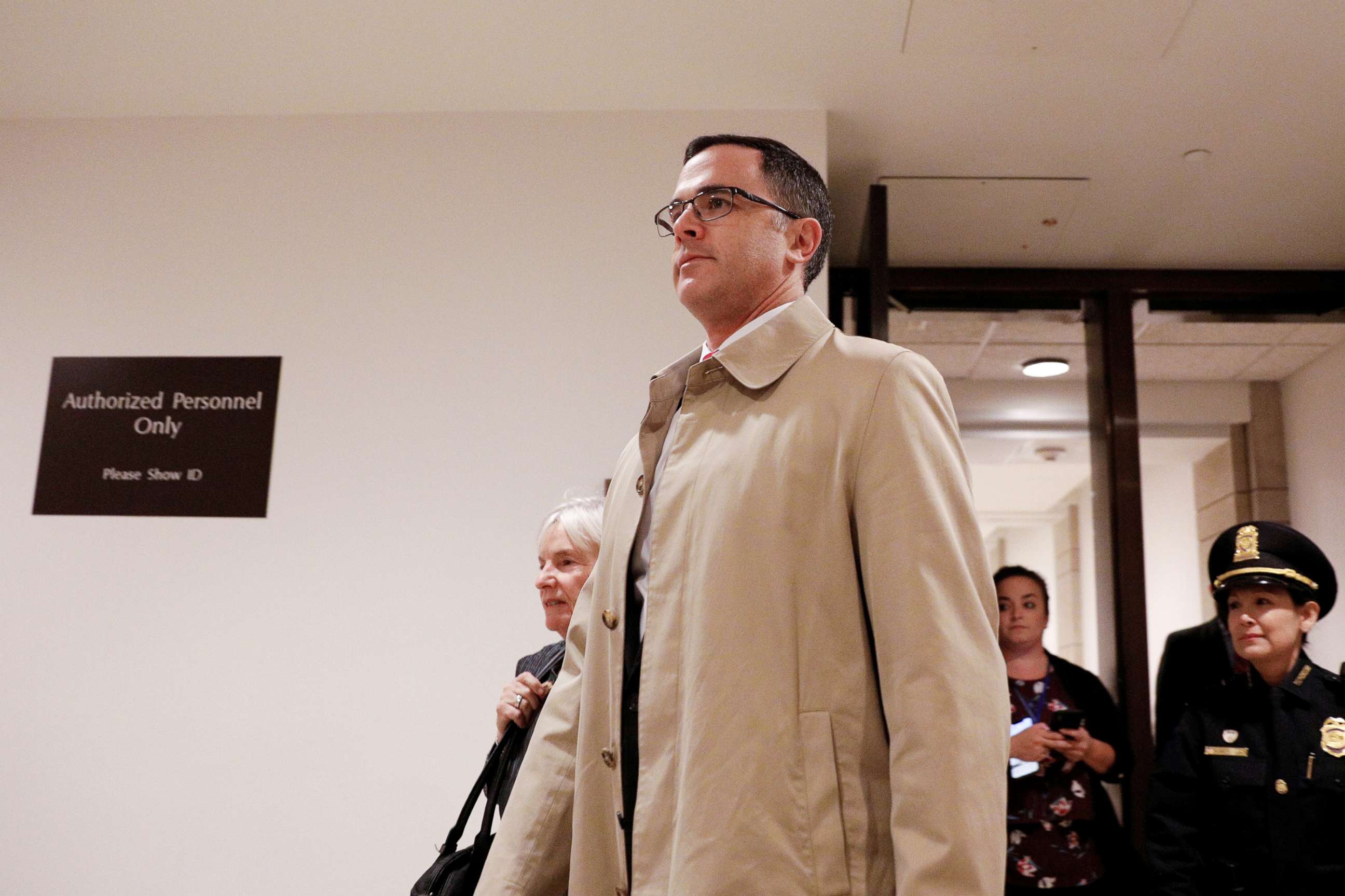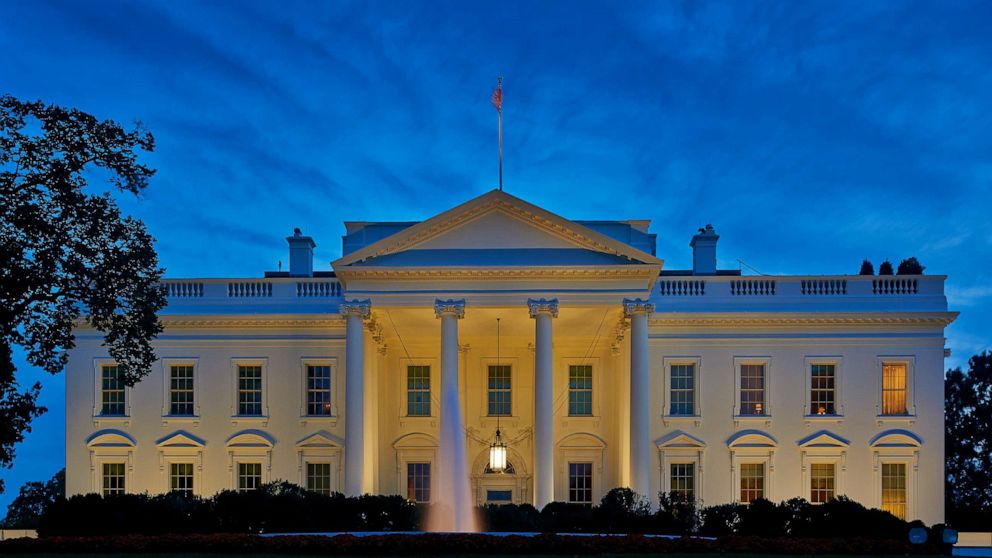White House official not worried Trump call on Ukraine was illegal
Tim Morrison is a senior official with the National Security Council.
Tim Morrison, the senior director for Europe and Russia on the White House National Security Council, who testified on Capitol Hill Thursday before House impeachment investigators, is expected to leave his White House post soon, two sources familiar with the matter confirmed to ABC News.
A senior administration official confirmed the departure to ABC News saying, "After more than a year of service at the National Security Council, Mr. Morrison has decided to pursue other opportunities -- and has been considering doing so for some time. We wish him well."
Sources told ABC News that Morrison, though a career official, was very close to former national security adviser John Bolton.

Morrison, the second current White House official to face investigators, corroborated elements of earlier testimony from William Taylor, the top U.S. diplomat in Ukraine, about the efforts to pressure Ukraine to open political investigations in exchange for military aid and a White House meeting between President Donald Trump and Ukrainian President Volodymr Zelenskiy.
But while Taylor told investigators the conversation between U.S. Ambassador to the European Union Gordon Sondland and an adviser to Zelenskiy focused on a public commitment to investigate from Ukraine's leader, Morrison, who relayed the account to Taylor, told Congress it was a commitment from Ukraine's prosecutor general.
"Ambassador Taylor and I had no reason to believe that the release of the security sector assistance might be conditioned on a public statement reopening the Burisma investigation until my ... conversation with Ambassador Sondland," Morrison told investigators, according to a copy of his opening remarks obtained by ABC News. "Even then I hoped that Ambassador Sondland's strategy was exclusively his own and would not be considered" by administration leaders and Congress, he said.
Rep. Mark Meadows, R-N.C., told reporters that he heard "major discrepancies" between what Morrison said and what other witnesses testified about events at the center of the Ukraine impeachment inquiry.
Comparatively, Rep. Debbie Wasserman Schultz, D-Fla., told reporters that Morrison had corroborated some of the earlier testimony.
Morrison was subpoenaed for his testimony on Thursday, according to an official, after the White House sought to prevent his testimony.

While Lt. Col. Alexander Vindman, the first witness who actually listened in on President Donald Trump's July 25 phone conversation with Zelenskiy, told investigators he was so "concerned" by what he heard that he raised alarms with a White House lawyer, Morrison, the second witness to have listened to the conversation, said he was "not concerned that any illegal was discussed."
Morrison said the rough transcript of the Trump-Zelenskiy call "accurately and completely reflects the substance of the call," and that he was "not concerned that anything illegal was discussed."
He was concerned about the possibility of the call notes leaking, and worried about "how it would play out in Washington's polarized environment" and potentially politicize bipartisan support for Ukraine and impact Ukrainian opinion of the U.S.-Ukraine relationship.
"I am pleased our process gave the president the confidence he needed to approve the release of the security sector assistance," he told Congress. "My regret is that Ukraine ever learned of the review and that, with this impeachment inquiry, Ukraine has become subsumed in the U.S. political process."
Taylor also testified that Morrison told him he had a "sinking feeling" after talking with Sondland about a phone conversation Sondland had with the president, during which Trump allegedly told Sondland that he was not asking for a "quid pro quo" but insisted that Zelenskiy "go to the microphone and say he is opening investigations of Biden and 2016 election interference."
In his position as the NSC's senior director for Europe and Russia, Morrison replaced Fiona Hill. Hill previously told House investigators that there was an effort within the administration to push back against a shadow diplomacy effort being led by the president's personal lawyer Rudy Giuliani and that Bolton at one point directed her to tell the NSC's lawyer that he was not any part of the "drug deal" Giuliani was cooking up.
Morrison told lawmakers that Hill warned him that Sondland and Giuliani "were trying to get President Zelenskiy to reopen Ukrainian investigations into Burisma," which led him to Google Burisma and learn that Hunter Biden was on the board.
"I also did not understand why Ambassador Sondland would be involved in Ukraine policy, often without the involvement of our duly-appointed Chief of Mission, Ambassador Bill Taylor," he said.
Investigators are hoping to question a number of key White House lawyers and officials early next week, as they prepare to move into the public phase of their inquiry. The House on Thursday voted to approve a resolution laying the groundwork for open hearings in the House Intelligence Committee, in a party-line voted that featured just two Democrats crossing party lines to oppose the measure.




